The sun is our source of vitamin D, it keeps the Earth warm enough for life and it nourishes our plants so that we don’t starve, so life as we know would change forever if the sun were to go out. The question for many is “Can we survive if the sun goes out?” The final answer is simple, but the hows and whys are often supposition based upon scientific speculation.
Though most physicists say that the sun’s sudden termination is physically impossible, others say that it could happen. The results would quickly be chilling (see what I did there?).
The Earth does have some insulating abilities that would keep us from freezing immediately, but it wouldn’t take long, in the scheme of things, for the Earth to reach temperatures that couldn’t sustain life.
Right now, the Earth’s average surface temperature is about 80 degrees F (300 kelvin, which is how they measure it). Some scientists speculate that the surface temperature would drop by a factor of two every two months. In other words, two months after the sun went out, the temperature would drop to -189 degrees F (150 kelvin) and two months after that, it would reach -325 degrees F (75 kelvin) and it would just keep dropping.
Other scientists speculate that it would take a bit longer than that – within a week the temperature would be below zero and in a year it would be -100. That would continue until the planet reaches a stable -400 degrees.
Obviously, that isn’t sustainable even one month after the sun goes out, so is it possible to survive? Yes, for at least a short amount of time if you’re only considering temperatures.
The greatest chance for survival would be to do as Iceland does – convert to geothermal or nuclear-powered habitats. You could also survive, with vitamin A and D supplements and a significant amount of stored food, in submarines deep in the ocean because the deepest parts of the ocean won’t likely freeze at least for the first few hundred thousand years.
We could continue to harvest volcanic heat for several hundred years so if we found a way to continue the photosynthesis that is required for plant growth, we could, in theory, survive for that long in some type of insulated habitat.
The reason that vitamin A and D supplements would be necessary, primarily, is because they are responsible for calcium use in the body. Without these vitamins, our bones would eventually (within your lifespan) become so brittle that even a simple fall or slight trauma could shatter our bones.
Fish could survive deep in the ocean so we could use those as a source of food so if we manage to find a way to produce plants, we’d be good.
I mentioned earlier that we could survive if we are only considering the heat and vitamins that the sun provides. However, those factors aren’t the only problems or even the biggest ones, that we would face if the sun were to go out.
The sun also provides gravity for the earth. Our mass and physical makeup hold us as the third planet from the sun because of the sun’s gravitational pull. If the sun goes out, we’d spin out of control into space.
The biggest optimists among us say that we may spin into another galaxy and find another sun but let’s get real – the physics behind that aren’t really something that could ever, within the realm of logic, promote such a thing happening.
OK, so now that we know that life would basically immediately cease to exist if the sun were to go out all at once (which, by the way, is said to be impossible), what would happen if the sun just lost a bit of its shine?
This is actually considered a possibility among many in the science community and would start a mini-ice age. In this case, we have a much greater chance of survival. The reason that scientists are considering this a remote possibility (or in some cases a very real possibility) is because the sun cycles every 10-12 years due to moving fluids within the sun.
The sun has magnetic waves that fluctuate between the northern and southern hemispheres of the sun. When theorized using fairly accurate math, combining these happenings together would put us into a mini-ice age.
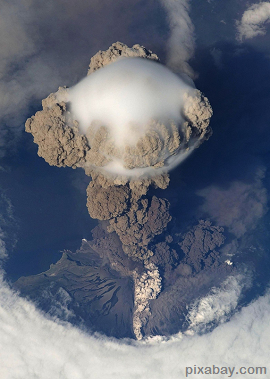 This group of scientists hypothesize, based on past history, that the Earth is due for this somewhere between 2030 and 2040. They think that the sun’s energy will decrease by about 60%, pushing us into another ice age. The last time it happened was in 1645 and it lasted until 1715. Obviously, mankind survived that mini-ice age and we could do so again.
This group of scientists hypothesize, based on past history, that the Earth is due for this somewhere between 2030 and 2040. They think that the sun’s energy will decrease by about 60%, pushing us into another ice age. The last time it happened was in 1645 and it lasted until 1715. Obviously, mankind survived that mini-ice age and we could do so again.
A mini-ice age could also be caused by a volcanic eruption such as an eruption of the super-volcano in Yellowstone. Most of the Earth would be covered in glaciers but not all of it. People would rush to the tropics where the temperatures would be more tolerable and plant life would be more sustainable.
Food
The problem here is that there wouldn’t be enough food grown in those areas to support the local population and food transportation would prove to be near-impossible because the road systems would collapse. Therefore, farms would need to use greenhouses and breed animals that would be more liable to survive perpetual winter such as cattle. Chickens probably wouldn’t be viable.
Shelter
Shelter would be another issue. They’d have to be extremely well insulated and self-sustaining since power plants probably won’t exist. Houses would also be smaller and have fewer windows in order to heat them.
Communities would likely form in small clusters in order to promote commerce, education, procreation and recreation. As humans, we’re social creatures and would seek company of a variety of people. I, for one, love my family but wouldn’t want to be stuck with only them for years on end!
Water
Water requirements would actually be much easier to satisfy than food. You can just boil snow, or even allow it to melt though you should boil it or purify it before you drink it because of the pollutants and contaminants it would contain. We can even desalinate water now so water really wouldn’t be a problem.
Heat
Here is where things would get challenging because the main source of fuel would be wood for most people. Hopefully by then, we’ll have developed wide-spread use of wind, geothermal or nuclear sources of heating. Otherwise, we won’t last long because of the lack of readily available fossil fuels.
So, in conclusion, if the sun totally goes out (an impossibility according to physicists), we’d be screwed. Dead as a hammer in no time flat. If, however, we only have a reduction in sun or a SHTF event such as a super-volcano, we could survive as long as we were properly prepared. Store your food, develop a sustainable source of energy and build a well-insulated house suited to holding in heat for extended periods of time.
We’d love to hear other theories, so please tell us what you think in the comments section below!
This article has been written by Theresa Crouse for Survivopedia.


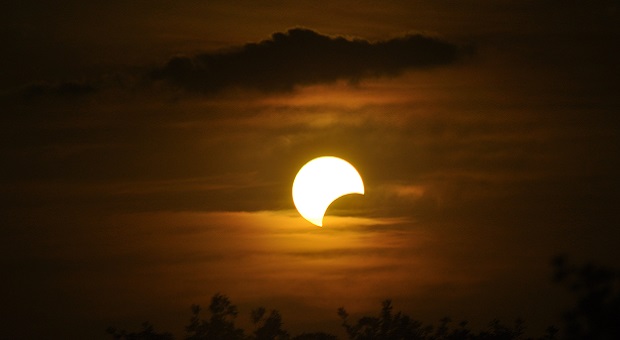

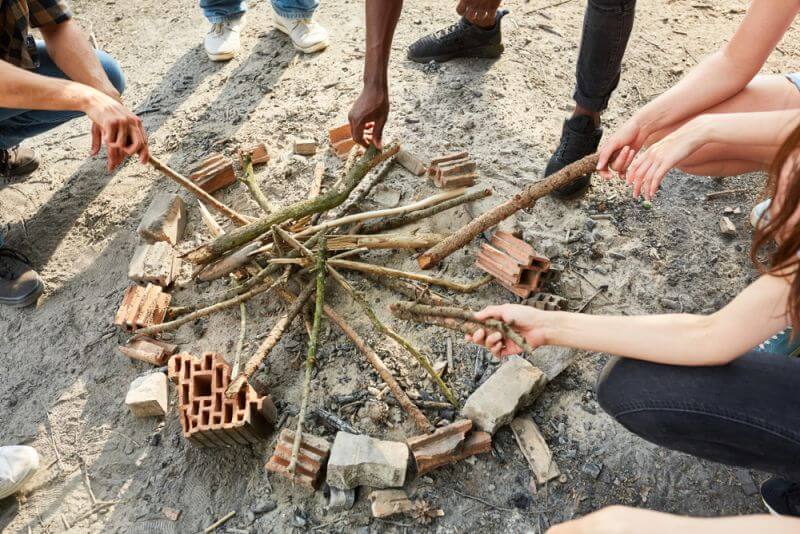

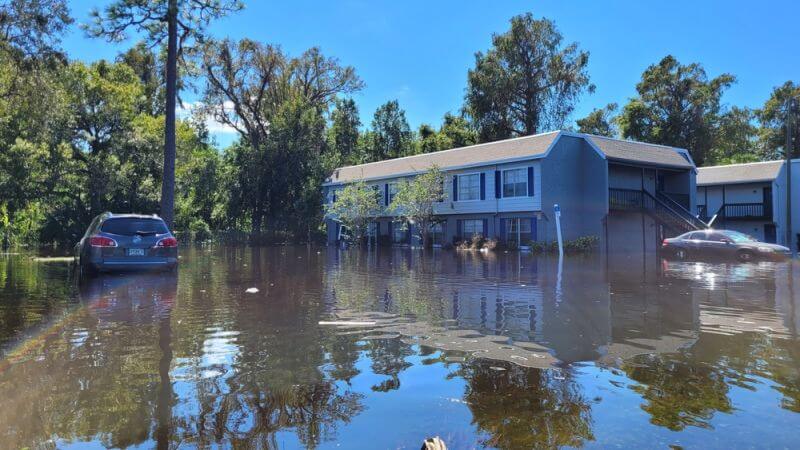
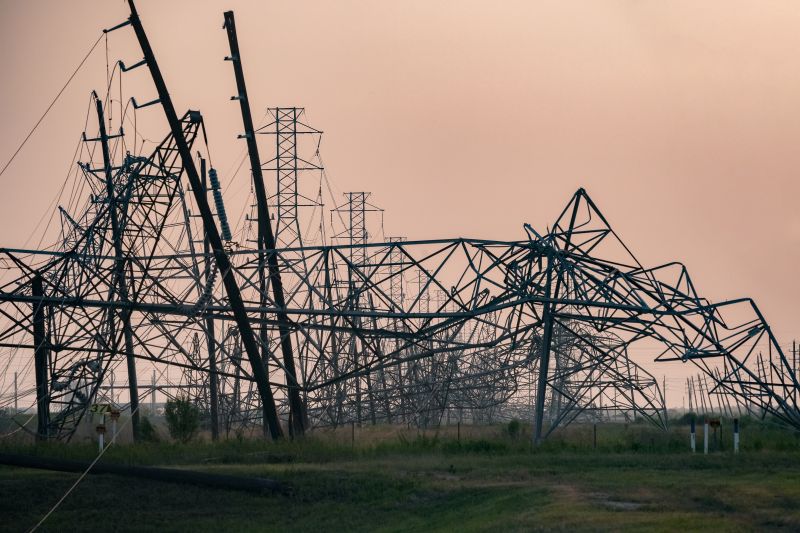

Phillip Robinson | July 28, 2015
|
I tend to agree with the volcano theory although America isn’t the only one to be privileged enough to have nasty volcanoes. Indonesia has 100 active volcanoes, a country that can fit inside Western Australia 7 times. Then there’s this nasty super volcano in New Britain in the Solomon Islands. If that one goes it will cover Australia in an ash cloud for up to 2 years. Of course let’s not forget Krackatoa when it went BOOM in the 18th century and killed 50,000 back then. It’s being regrowing since 1930 with the same nasty vent inside, wide deep down, narrow at the top, causing the pressure to build up even more than normal.
Mike | July 28, 2015
|
No chance of the sun going out. It is a fusion reactor that has burned for four and half billion years. It probably has about that much time left based on the amount of remaining hydrogen fuel (it burns 5000 tons of fuel every second). It can, however, slow down its fusion reaction for reasons that aren’t completely clear, but which probably have something to do with the reaction of its magnetic field and the plasma that makes up most of its mass. A slow down is currently underway, with solar activity measurably lower and fewer sun spots. It isn’t clear how this will affect Earth weather, but there is strong circumstantial evidence that this will lead to much colder weather patterns for up to the next 30 years. Plan on more violent winters and shorter summers. Being prepared, as Theresa suggests, is a good idea, but don’t plan on needing spacesuits.
grintch | July 28, 2015
|
If the Sun went out it would disperse out of our solar system, then lacking its gravitational pull, all the planets would fly out of orbit into space.Death would be immediate.
Wally Gilbert | July 28, 2015
|
The Sun will only get hotter for the next billion years then explode into a Supernova! Earth will then burn up!
The biggest feat should be a large meteor strike or a super volcano! That would end civilization.
STeven | July 30, 2015
|
Sorry to tell you but the sun is not big enough for a supernova explosion, the sun would expand and consume the inner planets including earth, though I guess everything is just a theory.
Kimball | July 28, 2015
|
On a purely theoretical level, assuming the sun “went out” why would the Sun’s mass suddenly disperse ? Of course it wouldn’t and our planet as well as the others would continue to orbit. On another topic, why was so much of this article devoted to our theoretical survival, or lack thereof, from an impossible event?
Holly Phillips | July 28, 2015
|
Keeping animals would be much more viable if you built a walipini. You get the geothermal boost and you can keep chickens and goats in that environment quite easily. Rabbits are also a good source of meat and can quickly produce that meat.
Norene | July 28, 2015
|
I’d pray!!!
Michael Holt | July 28, 2015
|
The Sun being a giant ball of nuclear fusion cannot simply “go out.” However, it is expected that one day the Sun will burn up enough of its hydrogen gas that it will no longer be able to sustain hydrogen fusion. It would begin to collapse under its own weight (helium — heavier than you imagine) and, once the helium reaches enough density (and gets hot enough), helium fusion will ignite, blowing off the outer shells of the sun in a nova, incinerating the Earth. Actually, prior to imploding and igniting helium, the sun will swell and envelope the Earth, incinerating us that way. So we will be incinerated twice. Nice.
STeven | July 30, 2015
|
Exact thoughts I had, made this whole post redundant.
Conshana | July 29, 2015
|
First of all, the sun is NOT “going out”, as in complete and utter darkness. The sunspots and temperature fluctuations have been cyclic throughout Geological, Meteorological and Astronomical history, as well as throughout recorded history of humankind.
Granted, a Volcanic or “Nuclear Winter” is possible, but not to the point of an extended “mini ice-age”, as spoken of in this article.
All of that said, it would behoove all of us to do at least a cursory research into Climatological Cycles. The results would be, shall we say, quite interesting~!
John Partin | July 29, 2015
|
Fascinating, well written and something most people don’t think about!
Mahatma Muhjesbude | July 29, 2015
|
Long before any of life ending ‘solar’ scenarios ever approach reality, our species will have advanced enough– or should i say at least the technology and Artificial Intelligence advancements–to where we’ll all be well colonized on suitable ‘Earth’ style planets now being ‘discovered’ by probes like the Kepler telescope.
Super Volcanos, Nuclear Wars, and plagues, however, will certainly ‘cull the herd’ during the interim.
Mike | July 29, 2015
|
The lead in to your E Mail is incorrect, this scenario is NOT contrary to the “Global Warming Advocates”, it is exactly what they are predicting. The correct label for that very large group of scientists & individuals is “Climate Change Advocates” and their contention is that the warming caused by nature, with the assistance of mankind’s increasing chemical footprint in the atmosphere, will cause exactly what your article is concerned about, a mini-ice age precipitated by melting glaciers and shifts in the ocean currents caused by the increased fresh water from the melted ice. These current shifts will result in cooling in North America and a return to an ice age type situation over about half of the U.S..
This is a very real possibility if we don’t do something to lessen at least man’s contribution to the atmospheric issue, since we can’t do much about the natural cyclical contributions.
Mahatma Muhjesbude | July 30, 2015
|
There’s only one problem with your notion, Mike, There is NO verifiable global warming. IN FACT, If one bothers to do the research diligence, they’d discover that the average yearly temperature differentiation over the past generations has only varied less than one degree f. Note the qualifier ‘average’.
When the inventor of the internet was working his global warming scam which he raked in 80 mil personally, he was ‘cooking’ the stats and cherry picking a couple short term wx pattern trends which could be ‘played’ to go either way. Because of last winter’s ‘polar vortex’ i guess that ‘could’ be an ‘ominous’ foreboding of an imminent ice age, right?
Or wrong. Depending upon which side of the lunatic fringe teeter-totter you happen to be riding.
The Earth has been and continues to constantly change physically over time. Weather is one of the most difficult sciences to master due to the myriad of complex variables affecting such a fragile global environment.
So mini-ice age? Sure. Drought and glacier melting heat waves? That too! Sooner or later we’ll get it all!
And when mother nature gets pissed enough at our wasteful despicable abuse of the planet…the old bitch will just ‘extinct’ filthy humans, and start all over again.
This time probably with A.I.
Mick Simmons | November 2, 2015
|
In my opinion, super volcanic eruption can and will eventually lead to the “nuclear winter” scenarios. Yellowstone alone has soooo much magma and will pop in 10 – 100,000 years. I have heard it reliably discussed that sunlight could be blocked for centuries and global temperatures could plummet 20 + degrees. Our planet is alive and when there is no longer volcanic activity to be feared it will be dead. Allegedly like the moon or Mars. Question 1: is it possible that global warming could save us in this cataclysmic event because the average temperature would ultimately be warmer? With the cyclical nature of temperature this would obviously be difficult to manage. Question 2: should we be most concerned about nuclear meltdowns all across the planet in any of these nightmare scenarios? Obviously nuclear power has the potential to save us but when these man-made facilities are destroyed or can’t be managed and maintained will they make our biosphere uninhabitable for us?